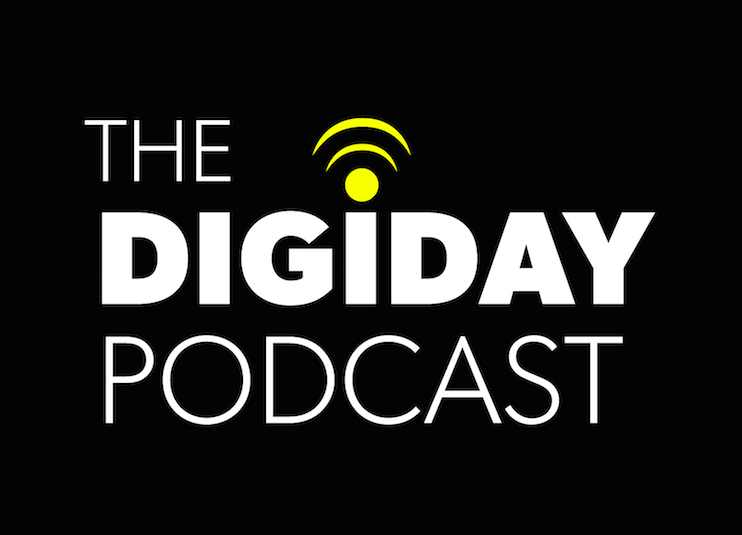Last chance to save on Digiday Publishing Summit passes is February 9

Podcasts have been around for a decade, but they’re having a definite moment now, thanks in large part to the runaway hit, “Serial.”
While many are jumping into the podcast fray — including Digiday — some publishers are savvy veterans of the space. Slate has been podcasting for the past decade and now boasts 15 regular shows, with topics ranging from culture to politics to TV. Podcasting audiences are growing, inching toward 20 percent of all U.S. Internet users, according to Edison Research. Some Slate podcasts draw up over 200,000 downloads, while others have niche audiences of 15,000. That’s the beauty of podcasting, Slate general manager Brendan Monaghan told us in this week’s, ahem, Digiday Podcast.
“It never really went anywhere,” he said. “Certainly some organizations committed less to it, more to it. At Slate we’ve seen steady growth and a lot of interest increase as technology advances.”
Monaghan joined me and Digiday staff writer Eric Blattberg to discuss the future of podcasting and Slate’s foray into spinning out a podcast network called Panoply, which will offer its expertise to other publishers wanting to build their own podcasts. Subscribe to the Digiday podcast here. Some edited highlights from this week’s episode are below:
Podcasting is about serving niches.
“Radio in general has limited space. There’s limited time, and they’re trying to reach mass audience. Podcasting allows for an incredible amount of diversification. There are now 300,000 podcasts in iTunes. I’m not saying they’re all the quality you’d like, but they are certainly interesting and compelling in a variety of contexts.”
Podcasting plays into on-demand consumer culture.
“Everyone is so used to their DVR. In the audio space, that’s happening as well. You see that, whether it’s a DVR or an Uber or food delivery. It’s people getting things when they want it and how they want it. Combine them, and you’ve got a pretty compelling case.”
Slate wants to work with competitors on podcasting.
“We started with the concept that we have some great podcasts at Slate, and we saw opportunities to work with some other publishers that might be thought of as competitors. Given the burgeoning arena we’re in, there’s so many opportunities for folks to get into this space. For Panoply, not only did we bring sales expertise but we brought production opportunity with several studios where folks can come and record shows with our staff. We help identify producers for them and provide not only the production but the audience development and sales side. We tried to hit all areas of interest.”
Audience development is a big challenge.
“The challenge is it’s a unique experiment. There’s the challenge of finding people who know how to download and listen to podcasts. There’s a compelling opportunity to bring listenership when other people are listening to podcasts. If you’re listening to a podcast, you might listen to something else. We’re trying to solve this cul de sac problem. You go and listen to a podcast and you get to the end of it and you’re like, ‘where do I go now?’ That’s a real challenge.”
Brands haven’t yet arrived in podcasts.
“It’s emerging. You had a podcast teased on SNL, so you know you’re hitting the mainstream when that happens. What we’re seeing is there’s a growing awareness at the brand and agency level. We’ve had some great relationships where people see the value in the connection podcast listeners have. Some of the great response we’ve gotten from advertisers is them giving five bullet points to riff on. People aren’t as quick to fast-forward.”
Sponsored by Bionic Advertising Systems
Intro music: Benny Reiner
More in Media

Brands invest in creators for reach as celebs fill the Big Game spots
The Super Bowl is no longer just about day-of posts or prime-time commercials, but the expanding creator ecosystem surrounding it.

WTF is the IAB’s AI Accountability for Publishers Act (and what happens next)?
The IAB introduced a draft bill to make AI companies pay for scraping publishers’ content. Here’s how it’ll differ from copyright law, and what comes next.

Media Briefing: A solid Q4 gives publishers breathing room as they build revenue beyond search
Q4 gave publishers a win — but as ad dollars return, AI-driven discovery shifts mean growth in 2026 will hinge on relevance, not reach.





